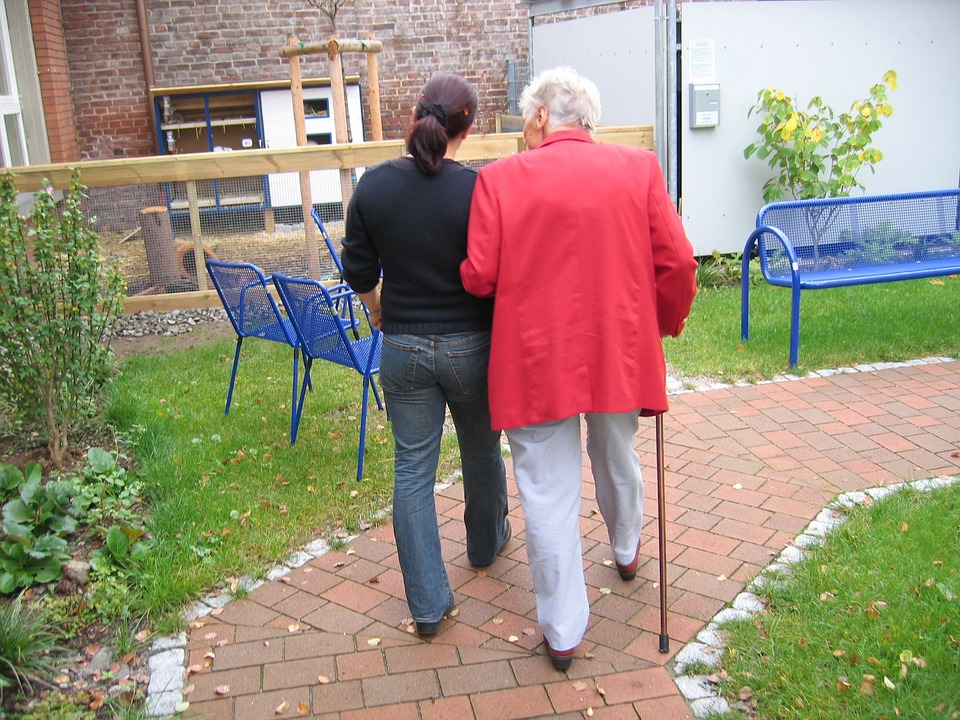
In Home Physiotherapy for Degenerative Diseases
Whether you are young or old, losing mobility and independence can be a frightening and depressing transition in one’s life.
Degenerative diseases, as the name implies, are diseases that progress over time. While it may seem as if those who suffer from them are destined to eventually lose all capability of living a fulfilling and independent life, early treatment can aid in preventing progression, managing pain and regaining mobility.
Physiotherapy is designed to provide this kind of support. By understanding what degenerative diseases are, and how physiotherapy can help, that long dark road will seem a lot less long and far less dark.
What are Degenerative Diseases?
Degenerative diseases are conditions of the body that cause tissue or organs to deteriorate over time. They are typically associated with aging and caused by normal wear and tear on the body over time but can also be the result of poor health or an unhealthy lifestyle.
These types of diseases usually worsen during the aging process and can be divided into 3 categories:
- Cardiovascular (hypertension, coronary disease, myocardial infarction)
- Neoplastic (tumors and cancer)
- Nervous System (Parkinson’s disease, Alzheimer’s disease)
Most degenerative diseases can be cured but there are many that do not have any curable treatments available.
For those that can’t be cured, there are treatment options that can relieve symptoms of the disease in order to help patients live as normal and independent lives as possible.
In Home Physiotherapy for Degenerative Diseases
Physiotherapy is often a valid treatment option for degenerative diseases. Physiotherapists can devise treatment plans in order to improve mobility, reduce pain, improve strength and improve function.
In cases where mobility and independent living create challenges for clients, in home physical therapy is a great option. The physiotherapists at In Home Physical Therapy and Massage can visit patients in home to implement treatment plans that will help in managing and overcoming the symptoms of degenerative diseases.
Parkinson’s Disease
Parkinson’s disease is a movement disorder that slowly progresses and gets worse over time. Symptoms of Parkinson’s disease include tremors and weakness.
It is a neurological disease that cannot be reversed. However, physiotherapy can help compensate for the changes in the day-to-day living of those who suffer from Parkinson’s.
A physiotherapist can help a patient learn new movement techniques to cope with the physical symptoms of Parkinson’s. One technique often used is called “amplitude training” and involves guiding patients to make over-exaggerated physical movements in order to retain the muscles and decrease the progression of hypokinesia (the smaller, shuffling movements often seen with Parkinson’s patients).
Physiotherapists can even prescribe special equipment and train patients in home on how to use it. This may include equipment designed to help with walking such as a walker or cane, or even special utensils designed to aid in eating for those who experiences tremors or shakiness.
Ultimately, physiotherapy can help those that deal with Parkinson’s disease strengthen and loosen muscles in order to make everyday living less challenging.
Muscular Dystrophy
Muscular dystrophy refers to a group of diseases that cause the muscles to become weaker and less flexible over time.
Physiotherapy can be used to address areas of muscle weakness and help to keep muscles flexible and strong. Exercises are often used to reduce join and muscular contractures. Muscular contractures occur when muscles or tendons have remained too tight for too long and eventually reduce in length.
Physiotherapists can also prescribe mobility equipment for everyday living and provide in home training on how to use it. Walkers, canes and wheelchairs may be used to aid with mobility while handlebars and lifts can be installed in the bathroom to help with bathing.
Multiple Sclerosis
Multiple Sclerosis (or MS) is an autoimmune disorder of the brain and spinal cord. MS causes communication problems between the brain and the body.
Patients with MS can seek help from a physiotherapist. Physiotherapy can be used to increase the patient’s strength as well as improve their balance and endurance. An exercise plan for MS often includes stretching, aerobic activity and strength training – all activities that can be taught by a physiotherapist and implemented in the home.
Assistive devices can also be prescribed to help those with MS maintain independence and complete every day tasks. This equipment can range from larger items such as a lift chair and ramps to smaller items such as heavier utensils or a shower chair.
Arthritis
Perhaps one of the most common degenerative disease, arthritis occurs when inflammation and stiffness of one or more joints causes pain and mobility difficulties.
Apart from anti-inflammatory medications, physiotherapy can aid those who suffer from arthritis by teaching clients techniques to manage joint pain and reduce joint swelling. Physiotherapy can also help reduce additional strain on the joints.
Physiotherapists may use thermotherapy (application of heat or cold), electrotherapy (electric nerve stimulation) or manual therapy (hands on) to keep joint structures mobile and reduce joint pain and stiffness.
Exercises specifically design to address the symptoms of arthritis can be designed by a physiotherapist to restore and maintain joint mobility as well as improve and maintain strength and function. These exercises include range-of-motion exercises, strengthening exercises and general conditioning exercises.
The Importance of Starting Physiotherapy Early
It is important to start a physiotherapy treatment plan as soon as a degenerative disease is diagnosed. Otherwise, the longer a degenerative disease is left untreated, the more it progresses to a later stage.
Physiotherapy may help prevent this progression or physical symptoms. Early recognition and management of a degenerative disease can aid in preventing or reducing pain associated with the disease.
In Home Physical Therapy and Massage understands that many degenerative diseases make leaving the home a difficult and uncomfortable endeavor. That is why we offer in home physiotherapy treatment to help patients regain mobility and live fulfilling and independent lives.
If you or a loved one are struggling with a degenerative disease and want to discuss treatment options, please book an appointment today!







